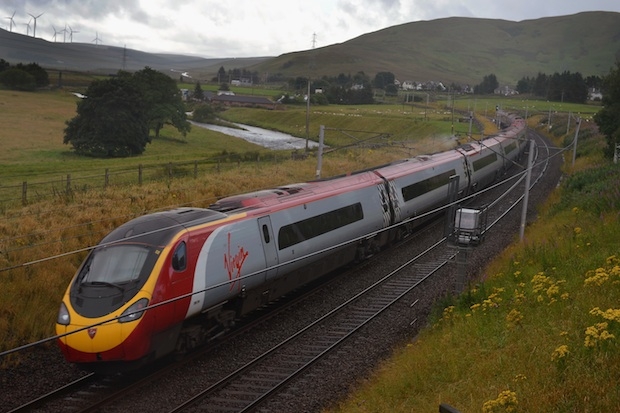The Secretary of State for Transport asked for my views on the capacity argument for HS2. I thought I would share them with you.
To establish that HS2 is needed on capacity grounds the government has to be able to demonstrate three main points. Firstly, that the current West Coast Main Line (WCML) is full or nearly full. Secondly that there are no easier or cheaper ways of adding significant capacity to the WCML or providing an alternative to tackle any future capacity problems. Thirdly, that the high forecasts of likely passenger growth and use of HS2 are realistic. I remain to be persuaded on each of these three matters.
The government has been coy about current usage of the WCML. Reported figures say that in the evening peak out of Euston the loadings are around 50%, but this does not take into account the move to 11 carriage trains from 9 carriage trains, which probably takes it down to 45%. As the idea behind HS2 is to encourage morning outbound to the north from Euston and inbound to London in the evenings – otherwise it is just strengthening London’s business and leisure pull – the current usage rates are clearly well below half. My own use of the outbound trains in the morning tell me loadings on some of these trains are around 25% or less, though I accept these are spot checks, not properly calculated averages. I would be happy to publish the exact figures if the railway would supply them. To win the argument the government needs to show higher current usage. It is also the case that some other train lines are considerably more crowded than the WCML, with the Paddington-west country lines probably the worst crowded operating at near full capacity already for periods of the day with severe congestion problems at peaks.
Should the WCML become more used, then there are easier ways of creating more capacity. Trains to the main destinations could be lengthened. One or more of the first class carriages could be switched to standard class, as first class seems particularly underused. The purchase of lighter trains with better brakes and better signals could lead to more trains an hour being run on the existing line. These would be much cheaper fixes than building a new line. A report leaked this morning says that increasing capacity on the existing lines would mean disruptive works each weekend. Some of the ideas in this paragraph require different specifications of train, which would not disrupt the track. Track works can be done at weekends and overnight to avoid interrupting busy schedules.
The forecasts for use of HS2 services are very optimistic. HS1 forecasts were far too high, leading to a 30% overstatement of future demand. The idea that once in full operation the railway will be able to fill 18 large trains a hour seems unlikely. The forecasts assume a large proportion of the passengers on HS2 will be switchers from current WCML services. There are simply not nearly enough current passengers to do this, so the forecast relies on an assumed surge in travel on this particular route. It is not clear why.
The architects of the project also concede that these forecasts will be very dependent on fares policy and the competitive response of the existing mainline operators and the other transport challengers – coaches, planes etc. The only way I could see that the HS2 operators could fill some of their many trains would be through heavy fare discounting, which would undermine the economics of the project even more.We should expect a strong competitive response from some challengers, leading to less fare revenue than forecast.
Commuters to Milton Keynes and Watford may well increase substantially and may need more capacity. HS2 would be a very expensive way of trying to do that. For the rest I remain to be convinced there is enough demand to have a viable current WCML, let alone pay for an expensive HS2 as well.
Article by Rt Hon John Redwood MP, first published on his website on 28 October 2013.
 Nigel Farage, Matthew Parris, Rory Sutherland and Cheryl Gillan will debate whether the government should ‘Stop HS2!‘ on 31 October 2013 in Westminster. Click here to book tickets.
Nigel Farage, Matthew Parris, Rory Sutherland and Cheryl Gillan will debate whether the government should ‘Stop HS2!‘ on 31 October 2013 in Westminster. Click here to book tickets.






Comments